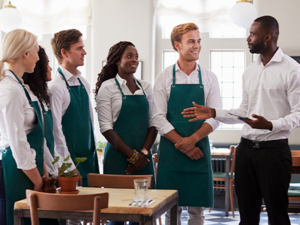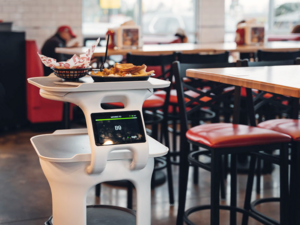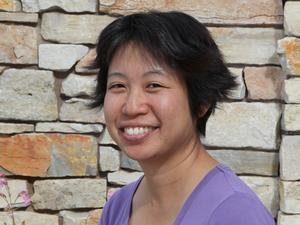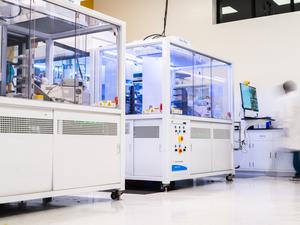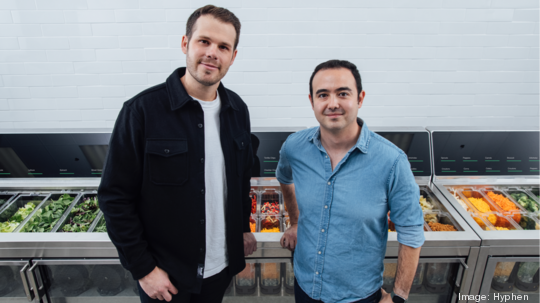
Consumers interact with automation all the time. For example, if you're ordering a salad, you might enter your order into a kiosk in front of the counter. But what if a robot were to assemble your salad behind the counter — or even better, if the counter itself prepared the salad?
Such is the future envisioned by Hyphen Technologies Inc., a startup based in San Jose that helps automate the manual "makelines" at restaurants like Chipotle or Subway.
"We're helping food brands and food providers save time and money with software and robotics," said Stephen Klein, co-founder and CEO of Hyphen.
The startup, which has $34 million in venture capital backing, has produced hardware and software that fits behind a food assembly table or counter. The hardware includes a series of panels, underneath which are a collection of containers and dispensing mechanisms that contain prepared foods like lettuce, shredded cheese and pieces of chicken.
When a customer orders a salad, Hyphen's machine first dispenses a container in an assembly line beneath the surface of the counter. The container is then moved along a conveyor belt to collect toppings that are automatically dispensed, depending on the ingredients a customer selects.
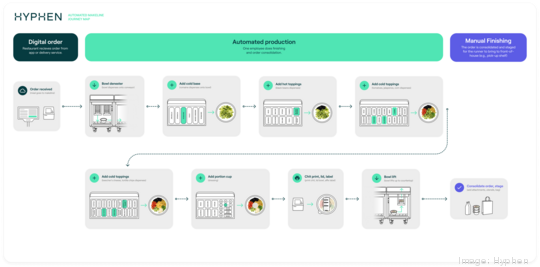
According to Klein, the automated system is ideal for a restaurant that serves customers both online and in-person. When someone orders from within the restaurant, they interact with a person who will assemble their order. But when a customer orders online, he said the Hyphen Technologies machine below the counter prepares the meal.
"Anything that happens on your phone, you don't really see or care who's making your food," Klein said. But, in the event that the automated line should fail, he added, "you're still at status quo or at parity with what the restaurant had before the automated line."
Prior to founding Hyphen in 2020, Klein was the vice president of operations at Cafe X Technologies Ltd., maker of a robot coffee bar in downtown San Francisco. "I've just always been obsessed with the food industry," he said, adding that he'd started his own frozen yogurt shop while attending Arizona State University. "That's really where I saw the beauty and effectiveness of automation."
Klein's co-founder, Daniel Fukuba, had been an engineering manager at L2F Inc., a Fremont-based company focused on helping the food service industry use automation and artificial intelligence solutions. L2F worked with Zume Inc. when that Mountain View company was focused on using a robotic arm to help make pizza. Zume shifted away from that approach two years ago and is now focused on food packaging.
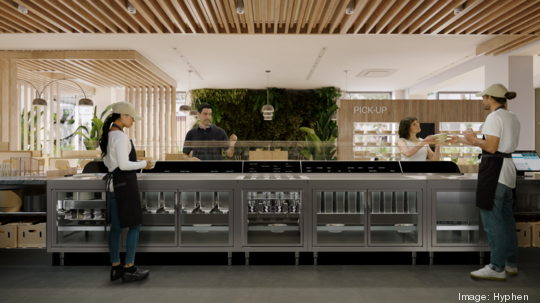
"Articulated arms are a great thing to do for one-off builds, like a manufacturing line, but they're not really efficient in that structured environment like food prep or food production," Klein said. "It'd take 16 robotic arms to get the throughput of one of our systems."
Hyphen makes money by charging a fee for every meal prepared by one of its machines — anywhere between $0.15 to $1.50 per salad, Klein said.
The startup raised its largest funding round to date, a $24 million Series A, in February from investors like Tiger Global Management. It also secured backing from Steve Fredette, co-founder and president of Toast Inc.; Marc Rowan, co-founder and CEO of Apollo Global Management; and Donald Moore, former chief culinary officer of The Cheesecake Factory Inc.
Hyphen has used the funds to help build out its makeline factory in Los Angeles, as well as to hire more engineers, designers and operators. Between March and May of this year, Hyphen nearly doubled its workforce from 35 to 59 employees.
The company's 11 customers, which Klein declined to name, are based in the Bay Area, Los Angeles, New York City, Phoenix and Seattle. So far, these customers have reserved 300 of the startup's makeline systems. Most of Hyphen's customers are restaurant chains and catering companies, though Klein said it also has at least one salad-packing company as a customer.
"Restaurants and food operators were always looking at automation as a solution to help with labor pressure pre-Covid," Klein said. "Covid shook up the restaurant industry, and a lot of folks were saying, 'We've got to do something now.'"
